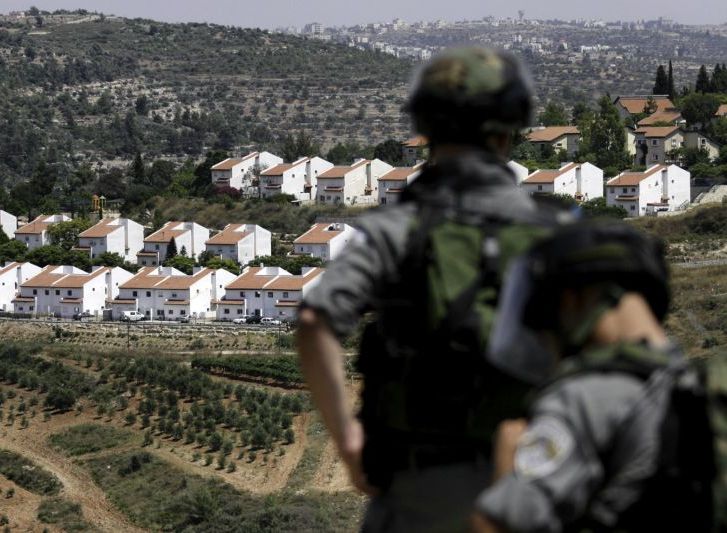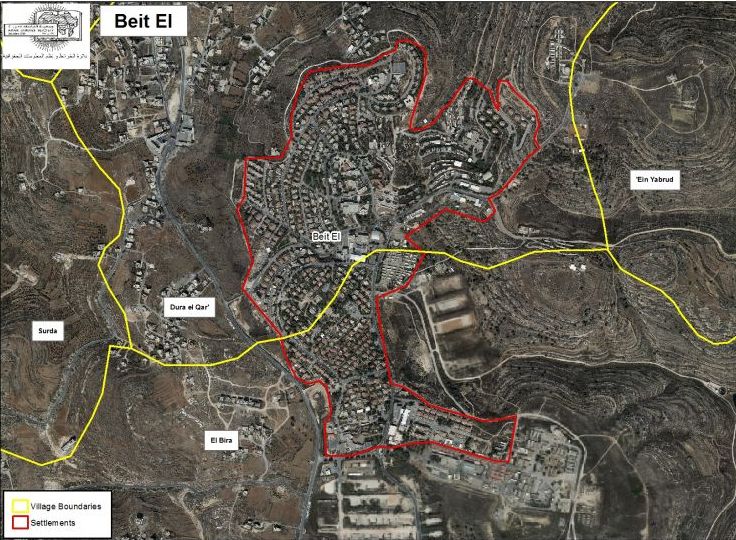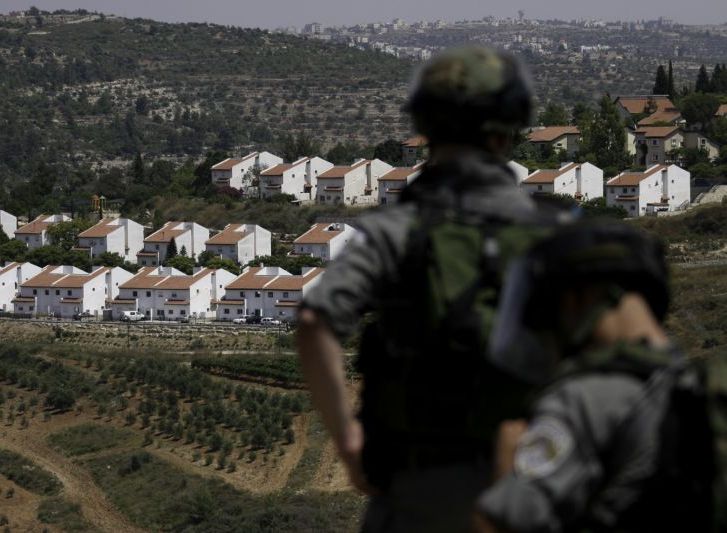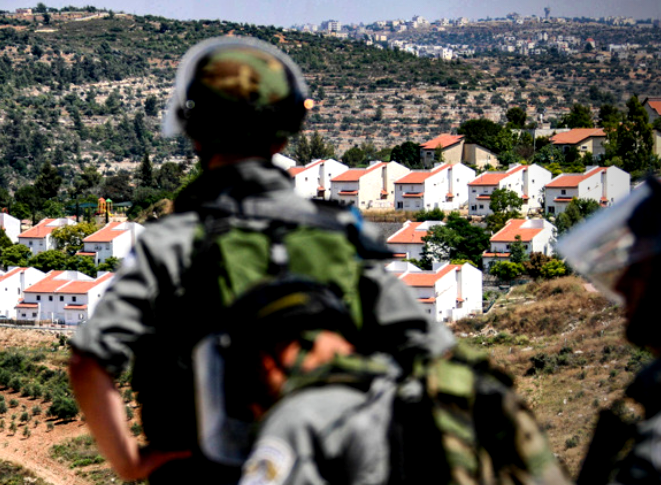Adalah: Proposed KKL-JNF decision to purchase land in the occupied West Bank violates international law and must be rejected
To:
Mr. Avraham Duvdevani, Chairman of the KKL-JNF
Adv. Avichai Mandelblit, Attorney General
Brig. Gen.l Yaniv Alaluf, IDF Commander of the West Bank Division
Members of the KKL-JNF Board of Directors
Re: Request to refrain from approving a proposed decision by the KKL-JNF to purchase land in the West Bank
Dear Sirs/Madams,
Following the proposed decision by the KKL-JNF to purchase land in the West Bank, we hereby request that you refrain from approving this decision and refrain from approving any such land transactions, including by the Jerusalem Himnota Company [a subsidiary of the KKL-JNF] as they constitute grave violations of the norms of international humanitarian law.
- Recently, the media reported on a draft resolution before the KKL-JNF's board of directors that would allow it to purchase land in the West Bank. The main purpose of these land purchases would be to strengthen and develop the settlement enterprise in the Occupied Palestinian Territory (OPT). It will be recalled that the JNF currently operates through the Jerusalem-based Himnota Company (hereinafter: “Himnota” or “Himnota Company”), which was established in the 1970s with the aim of operating in the West Bank. The Himnota Company is registered with the Civil Administration in the West Bank, and its purpose is the sale, purchase, rental, exchange, and cultivation of land in the area.
- In accordance with the Order Regarding Land Transactions (Judea and Samaria) (No. 25) - 1976, all real estate transactions in the West Bank are subject to approval by the Civil Administration’s Land Registry, appointed for this purpose by the military commander. In addition, a real estate transaction carried out in the West Bank by Israelis through a company registered in the West Bank requires a “transaction permit” from the head of the Civil Administration, in accordance with the Law for the Lease and Sale of Immoveable Property to Foreigners, No. 40 - 1953, and the Law Concerning the Use and Possession of Immoveable Property by Legal Entities, No. 61 - 1953, as amended by the Order Relating to the Law Concerning the Use and Possession of Immoveable Property by Legal Entities (No. 419). Thus, the purchase of land by the KKL-JNF and Himnota in the West Bank for the needs of settlements constitutes a matter in which the KKL-JNF, Himnota, and the military commander in the occupied territories are involved.
- As detailed below, the purchase of land in the West Bank by the KKL-JNF or any person acting on its behalf is strictly prohibited, as it blatantly violates international humanitarian law (IHL) applicable to occupied territories. As will be explained below, the prohibitions in IHL apply both to the actions of the military commander in the West Bank and to the actions of the KKL-JNF and Himnota.
- Violations of international law: Article 43 of the Hague Regulations constitutes, in the words of the Israeli Supreme Court, “a quasi-constitutional framework of the laws of belligerent occupation” (HCJ 2164/09 Yesh-Din v. Commander of the IDF Forces in the West Bank, paragraph 8 (Nevo Database, judgment delivered 26 December 2011), according to which the military commander is authorized to manage the occupied territories, and the main duty is to ensure the needs of the local population under occupation. The Military Commander must not take into account policy considerations relating to the needs of his country or citizens. And, as stated, “The military commander is not entitled to consider the national, economic and social interests of his own country, insofar as they do not affect his security interest in the Area or the interest of the local population. Military necessities are his military needs and not the needs of national security in the broader sense. A territory held under belligerent occupation is not an open field for economic or other exploitation.” (HCJ 393/82 Jam'iat Iscan Al-Ma'almoun v. IDF Commander in the West Bank, PD (4) 785, 795-794 (1983). Moreover, the Hague Regulations (and in particular Article 55) require the Occupying Power to treat land resources solely as a trustee for the benefit of the civilian [occupied] population, and therefore the military commander is clearly prohibited from making his country or citizens beneficiaries of public property.
- The aforementioned proposed decision, as well as Himnota's activities in the West Bank and the approval of its real estate transactions, entrusts the management of natural resources, especially the land, to the KKL-JNF and Himnota, in violation of Article 43, as they seek to change the status quo of the OPT and not for the benefit of the Palestinian population. In other words, land management will be in the hands of Israeli-Jewish bodies according to Zionist settlement policy, contrary to the basic norms of IHL. Needless to say, the KKL-JNF bylaws state that it acts solely for the benefit of the Jewish people, and this provision – applied where Palestinians live or in occupied territories – is considered racist and is also contrary to the International Convention on the Suppression and Punishment of the Crime of Apartheid.
- Notably, Article 49 of the Fourth Geneva Convention prohibits the Occupying Power from transferring its civilian population to the occupied territory, and such transfer is a war crime according to the Rome Statute establishing the International Criminal Court (Art. 8(2)(b)(viii) of the Statute). Further, the International Court of Justice (ICJ), in its Advisory Opinion dated 9 July 2004 on the Separation Wall, once again emphasized the status of all the territories occupied by Israel in 1967, as occupied territories and the status of settlements in the OPT as illegal and in violation of IHL.
- Liability for violations of international law: It is important here to define an “act of state” under international law, which, as will be explained, includes responsibility for the activities of the KKL-JNF and Himnota in the OPT. Draft Articles on Responsibility of States for Internationally Wrongful Acts (2001) (hereinafter: “Rules of State Liability”),[1] which are considered part of customary international law,[2] stipulate that the acts of an organization or a person that is not an organ of the State but is authorized by that State to exercise governmental authority, shall be regarded as an act of the State for the purposes of its obligations under international law. According to international law, and as Draft Article 5 provides:
“The conduct of a person or entity which is not an organ of the State under article 4 but which is empowered by the law of that State to exercise elements of the governmental authority shall be considered an act of the State under international law, provided the person or entity is acting in that capacity in the particular instance.”
- According to its interpretation, Article 5 deals with acts associated with the State even if such acts were committed not by a state organ but, for example, by non-governmental or bipartisan bodies and even private bodies authorized to exercise governmental powers, where the classification of the operating body in the state legal system, such as the KKL-JNF, or the degree of its subordination and control by the Executive are not decisive factors. The important criterion in this context is the actual characteristic of that body and the extent to which government powers are exercised. This is particularly relevant in light of the fact that the KKL-JNF has a special status in Israeli legislation. (Keren Kayemeth LeIsrael (KKL), 1953, Basic Law: Israel Lands, Israel Lands Administration Law, 1960, which gives the KKL-JNF six representatives in the Israel Land Council).
- Moreover, the Rules of State Liability also stipulate that the State's liability for international wrongful acts also encompasses the acts of individuals or private bodies when they act under the directive or in direct control of the State in question at the time of the act, and when the State recognizes and adopts the conduct itself. As stated, the activities of the KKL-JNF, if the proposed decision in question is approved, as well as the activities of Himnota, are currently carried out with the permission of the above orders and in accordance with the directives or policies of the State of Israel regarding settlements. It is also likely that these actions require additional approvals for planning, development, settlement, etc. In our case, Draft Article 8 of the Rules of State Liability provides:
“The conduct of a person or group of persons shall be considered an act of a State under international law if the person or group of persons is in fact acting on the instructions of, or under the direction or control of, that State in carrying out the conduct.”
In light of all of the above, I hereby request that you:
- Do not approve the above proposed decision; that
- the Attorney General give his opinion on the prohibition that applies to the KKL-JNF and its subsidiary Himnota Company to operate in the West Bank under the norms of IHL; and that
- the Military Commander not grant any permit to approve the activities of the KKL-JNF or Himnota in the West Bank.
I would be grateful for your position on this matter, as soon as possible.
Sincerely,
Suhad Bishara, Adv.
Suhad@adalah.org
copy: Real Estate Registration KMT, Civil Administration - by fax: 02-9977009; 02-6462585
[1] The Rules can be found on the United Nations website at the following link: http://legal.un.org/ilc/texts/instruments/english/commentaries/9_6_2001.pdf.
[2] The Rules were also mentioned in the ICJ’s advisory opinion on the Separation Wall being constructed by Israel in the West Bank (paragraph 140).




















